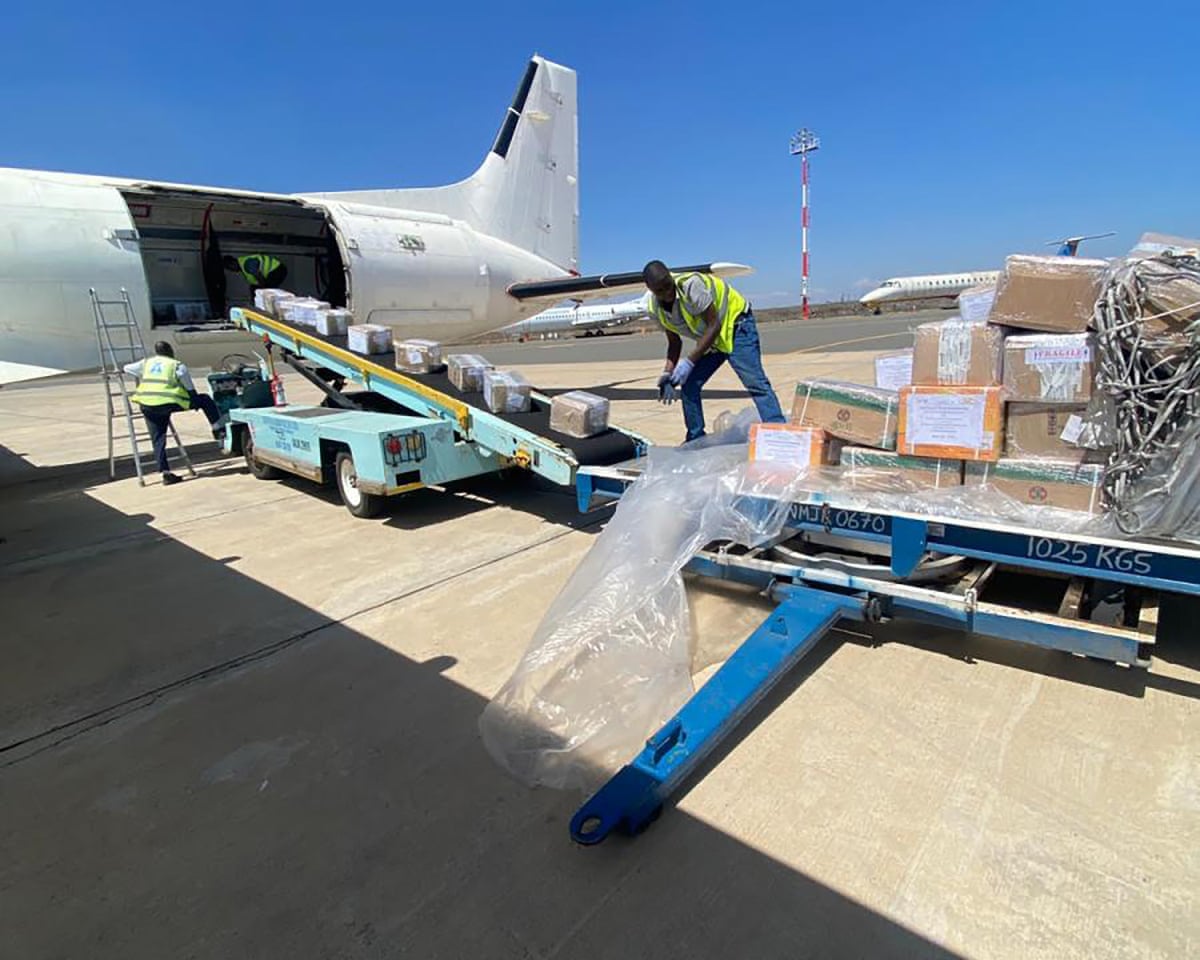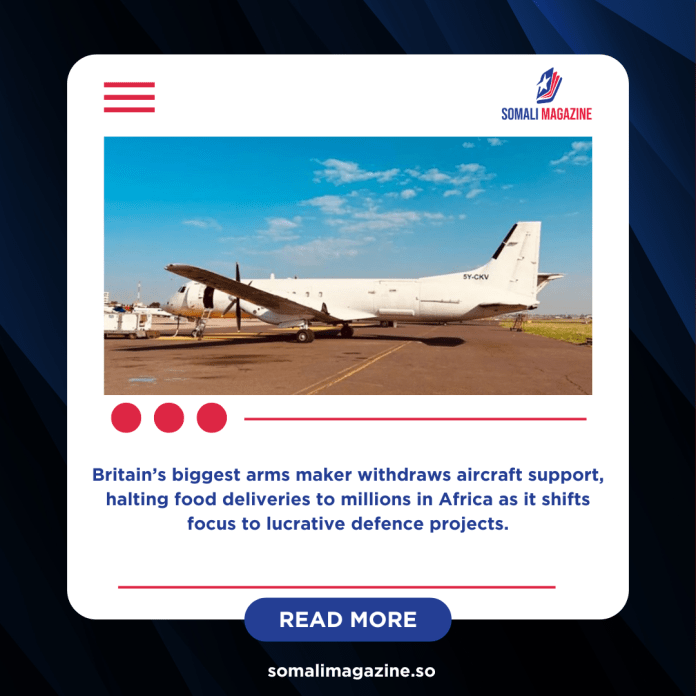Facebook Twitter (X) Instagram Somali Magazine - People's Magazine
BAE Systems, Britain’s largest weapons manufacturer, has quietly withdrawn support for a fleet of aircraft that delivered life-saving humanitarian aid to some of the world’s poorest nations, including South Sudan, Somalia, and the Democratic Republic of Congo (DRC). The move comes in the same year the company announced record profits of over £3 billion, boosted by rising global defence spending linked to the wars in Ukraine and Gaza.
The decision has effectively grounded several aircraft that were used to transport food and essential supplies to millions facing hunger across East and Central Africa. BAE Systems voluntarily surrendered the airworthiness certificate for its last commercial aircraft model, the Advanced Turbo-Prop (ATP), thereby revoking its licence to fly. The company told European regulators that the aircraft was no longer being produced and that only a few remained in service.
The ATP was widely used in humanitarian missions because it could operate on short and unpaved airstrips in remote regions. Each plane could carry over eight tonnes of food and supplies — enough to feed thousands of people daily. The last known operator of the aircraft, EnComm Aviation, a Kenyan cargo airline, relied on BAE’s continued technical support to keep the fleet running.
Jackton Obuola, EnComm Aviation’s director, said the withdrawal of support has left their planes grounded, cutting off vital aid to millions in need. “The aid our aircraft delivered provided a lifeline to the people of South Sudan, Somalia and the DRC,” he said. “Now, those communities face worsening hunger while BAE prioritises its commercial interests.”
Between March 2023 and September 2025, EnComm’s planes delivered nearly 19,000 tonnes of aid to Somalia, South Sudan, Tanzania, the DRC, Central African Republic and Chad. The UN’s World Food Programme (WFP) estimated that a single tonne of food could feed more than 1,600 people for a day. But since BAE’s decision, multiple humanitarian contracts have been cancelled, including a major WFP deal to deliver food to 12 regions in Somalia where almost five million people are facing severe hunger.
A letter sent by EnComm’s lawyers, White & Case, to BAE Systems on 13 October 2025 claims the company was led to believe that support for its fleet would continue for at least five years. The letter accuses BAE of acting without proper consultation or notice and says the aircraft are now “worthless for their intended purpose.” EnComm is seeking £187 million in compensation for losses and damages, citing “negligent misrepresentation and misstatement.”
Internal BAE correspondence seen by reporters shows that the decision to withdraw the ATP’s certification is “permanent and irreversible.” A company letter dated 27 May 2025 stated BAE’s intention to begin the process of surrendering the certificate to the UK Civil Aviation Authority, with completion expected by December 2026.
Since then, EnComm has been forced to shut down its operations in Kenya after losing contracts with several humanitarian organisations. Among those was a 10-year agreement to transport aid within the DRC and another with WFP Somalia. These contracts were vital to reaching areas classified as food crisis zones, where millions depend on air-delivered aid.
The UN says hunger across the affected regions has reached alarming levels. In Somalia, 4.6 million people are facing severe food shortages, with nearly two million children suffering from acute malnutrition. In South Sudan, more than 7.7 million people — over half the population — are acutely food insecure. In the DRC, 27.7 million people are going hungry amid conflict, displacement, and rising food prices, particularly in the eastern provinces.
Despite the humanitarian fallout, BAE Systems has not commented publicly on the matter, citing potential litigation. Analysts predict the company’s profits will continue to rise as global defence spending grows, while the consequences of its decision leave millions without access to vital aid.

